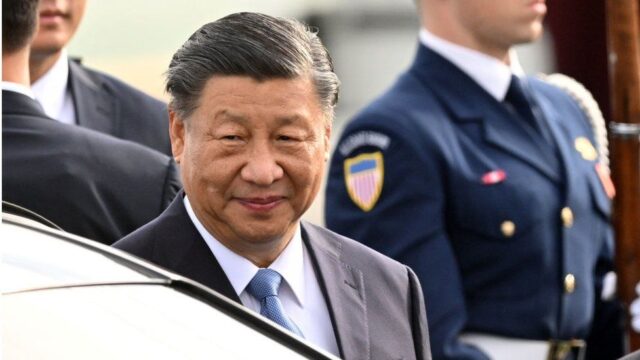The President of China, Xi Jinping, arrived in the United States on November 14, Tuesday, ahead of the much-awaited summit with US President Joe Biden and also before the Asia-Pacific Economic Cooperation meeting of leaders scheduled to be held in California’s San Francisco. Being Jinping’s first visit to the US in the last six years, the meeting between the two countries holds immense significance as an impetus to their bilateral relations. Jinping, in his meeting with Biden, is expected to discuss current matters of local and global importance like trade relations, ongoing global conflicts, and climate action. In a statement, White House press secretary Karine Jean-Pierre mentioned that the two leaders are expected to talk about the importance of maintaining open lines of communication. The meeting will help the countries “responsibly manage competition and work together where our interests align, particularly on transnational challenges that affect the international community.”
Joint Action to Address Climate Crisis
One main point of interaction between the US and China is jointly working with other countries to mitigate the severe climate crisis the world is currently facing. The US Special Presidential Envoy for Climate John Kerry and China Special Envoy for Climate Change Xie Zhenhua met in Beijing earlier this year and also in November to release a joint statement on how the countries are committed to solving climate issues. Both countries pledged their support for the implementation of the Paris Agreement, the Glasgow Climate Pact, and the Sharm el-Sheikh Implementation Plan. They also stressed the importance of the upcoming 28th United Nations Climate Change Conference, referred to as the Conference of the Parties, or COP28, to be held in December in Dubai. They also agreed to operationalize the ‘Working Group on Enhancing Climate Action in the 2020s’ that is co-led by two envoys to address areas of cooperation as identified in the joint statement and facilitate multilateral communication to address the same.
President Jinping called the current level of the climate crisis “one of the greatest challenges of our time,” referring to the high carbon emission rates. Both countries have agreed to implement their respective methane reduction plans as well as reduce plastic pollution. China and the US have also decided to implement policy-level improvements in the emission of greenhouse gases, nitrogen oxides, volatile organic compounds, and tropospheric ozone precursors.
Other Matters under Discussion
Although the climate crisis was the main point of discussion between the two countries, Jinping and Biden are expected to also discuss geopolitical tensions currently going on in several parts of the world. Biden, in his address, communicated his wish to resume bilateral relations between the two countries, including military-to-military contacts. Biden also remarked that the US did not want to decouple its trade relations from China, although it had already made a move to “de-risk” certain important US supply chains from the latter. Other key economic issues included the trade of fentanyl and high-tech chips.









